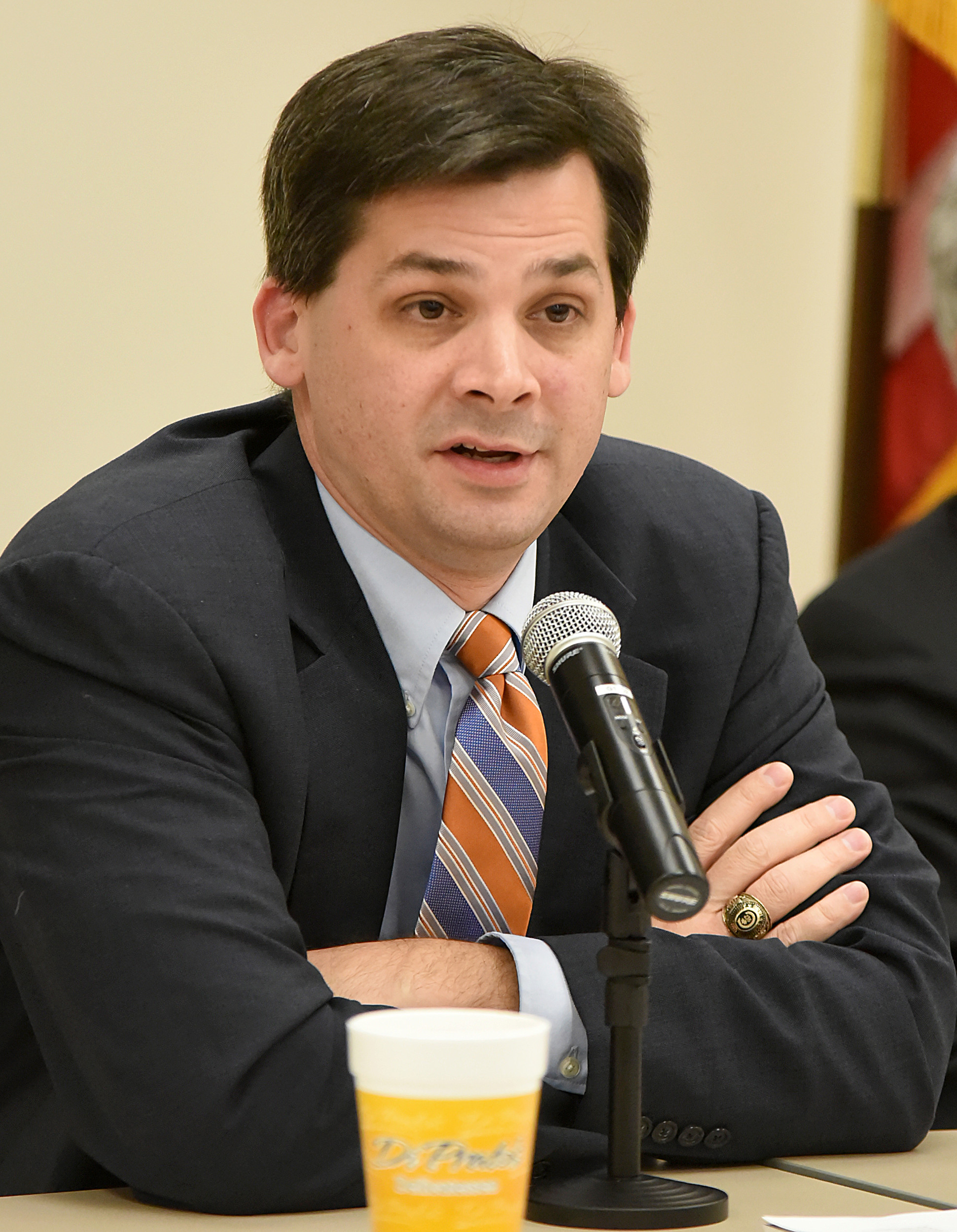S.C. education reform likely means reform for school spending

The Associated Press
COLUMBIA - The push to overhaul South Carolina's education system hasn't stopped just because the Legislature is out of session.
A small group of senators met Wednesday to continue to discuss the state's more than 40-year-old formula for distributing education money. The day before, a different Senate subcommittee considered a proposal to let parents and guardians get several thousand dollars that would typically be set aside for a child's public education and spend it on a private school.
House leaders spent the fall traveling around South Carolina to meet teachers of the year from every school district and get their ideas for education reform.
In the background of any legislative debate is the nearly $2 billion in additional revenue that could push the money lawmakers control to over $10 billion in the next budget year and how that surge of cash could allow South Carolina to change its entire tax structure top to bottom.
"I don't think we can lock in a $10 billion general fund budget without some serious reforms. I think there will be a big fight if there is an attempt to spend $10 billion," said Senate Majority Leader Shane Massey, a Republican from Edgefield.
Wednesday's discussion of education funding was so hypothetical and abstract that there was no bill involved, just senators gathering information like they have in previous meetings.
They have already taken in a report commissioned by the governor and the leader of the House and the Senate - all Republicans - that provided four options to change school funding along with a framework to determine how adjusting property tax rules or other parts of the formula will change how much state money that school districts get.
Part of the difficulty in funding education is old. The last time the state did major alterations to the formula was 1977 when textiles were one of the big industries in the state and each textile mill town had its own school and significant property tax base.
Then in 2006, South Carolina lawmakers passed a law limiting how much local governments could raise property taxes and how quickly those taxes could rise when property values increased.
With schools so dependent on property taxes to operate, the squeeze was on, especially in poorer, smaller districts where there aren't as many businesses to shoulder the tax load.
"We've got to address that issue to lift all boats in this state,"said Senate Minority Leader Nikki Setzler, a Democrat from West Columbia.
Wednesday's meeting included presentations from several think tanks on what other states have done, from California to Texas to Florida. Most of them are going away from the model South Carolina uses, where state money given to districts involves several different factors, from the wealth of a district's tax base to the number of students to local property tax money, which can vary widely.
Just 20% of the state's districts have $250 million in property outside of private owner-occupied homes that can be taxed. Only four districts have more than $1 billion, according to a May report from the state Revenue and Fiscal Affairs Office.
One mill of property tax raises $18,000 in Clarendon District 3 and $2.6 million in Charleston County, leaving school leaders in the richer, more urban districts with better options.
The education funding discussion is nestled inside a bigger tax debate started in the South Carolina House last year. Several meetings were held to discuss overhauling the state's entire tax structure, something House Speaker Jay Lucas has wanted to tackle since being elected to the leadership position five years ago.
The House has already dealt with education reform, and that extra time to debate along with the additional money in the budget could give that chamber time to tackle the tax code. One of the chief goals is to reduce income tax rates.
But any changes will likely be a big political fight, said Massey, who isn't sure the four months the Legislature is in session in 2020 is enough time to get it all done.
"When you make big changes like that you almost certainly are going to have winners and losers. And people don't like to lose," the Edgefield Republican said.
More Articles to Read
